Effective Time Management Techniques

TIME MANAGEMENT, in today’s fast paced world is not just a skill-it’s a necessity.With constant demands from work, family, and personal goals, managing time effectively can be the difference between thriving and merely surviving. Whether you are a student, a professional, or someone juggling multiple roles, mastering time management can help you achieve more, stress less, and find balance in your life.
This blog delves into the importance of time management and explores a variety of techniques that can help you make the most of your time.
Why Time Management Matters

Time management is about making conscious choices to spend your time on activities that align with your goals and values. When you manage your time well, you can experience:
1. Increased Productivity
Effective time management helps you get more done in less time by focusing on the most important tasks.
2. Reduced Stress
By planning and prioritising your tasks, you can reduce the anxiety that comes with last-minute rushes and missed deadlines.
3. Better Work-Life Balance
When you manage your time wisely, you can allocate time for both work and personal activities, leading to a more balanced life.
4. Improved Focus
Time management helps you stay on track and avoid distractions, leading to higher quality work.
5. Greater Satisfaction
Achieving your goals and completing tasks on time can boost your sense of accomplishment and self-esteem.
Understanding Your Time: The First Step to Effective Management
Before you can improve your time management, you need to understand how you currently spend your time. Start by tracking your activities for a few days or a week. Note how much time you spend on work, commuting, leisure, chores, and other activities. This will help you identify patterns, inefficiencies, and areas where you can make adjustments.
Setting SMART Goals

Effective time management begins with clear goals. Setting goals gives you direction and a sense of purpose. The SMART criteria are a popular framework for goal setting:
– **Specific**: Clearly define what you want to achieve.
– **Measurable**: Determine how you will measure progress and success.
– **Achievable**: Set realistic goals that are within your capabilities.
– **Relevant**: Ensure your goals align with your overall objectives.
– **Time-bound**: Set a deadline for achieving your goals.
By setting SMART goals, you can focus your efforts on what truly matters and allocate your time accordingly.
Time Management Techniques
Here are several time management techniques that can help you maximize your productivity and achieve your goals:
1. Time Blocking

Time blocking is a technique where you allocate specific blocks of time for different tasks or activities throughout your day. Instead of working from a long to-do list, you schedule each task on your calendar.
**How to implement time blocking:**
- **List Your Tasks**: Identify all the tasks you need to complete for the day or week.
- **Assign Time Blocks**: Allocate specific time slots on your calendar for each task.
- **Stick to the Schedule**: Follow your time blocks closely, making adjustments only when necessary.
Time blocking helps you stay organised, reduces decision fatigue, and ensures that you dedicate time to your most important tasks.
2. The Pomodoro Technique
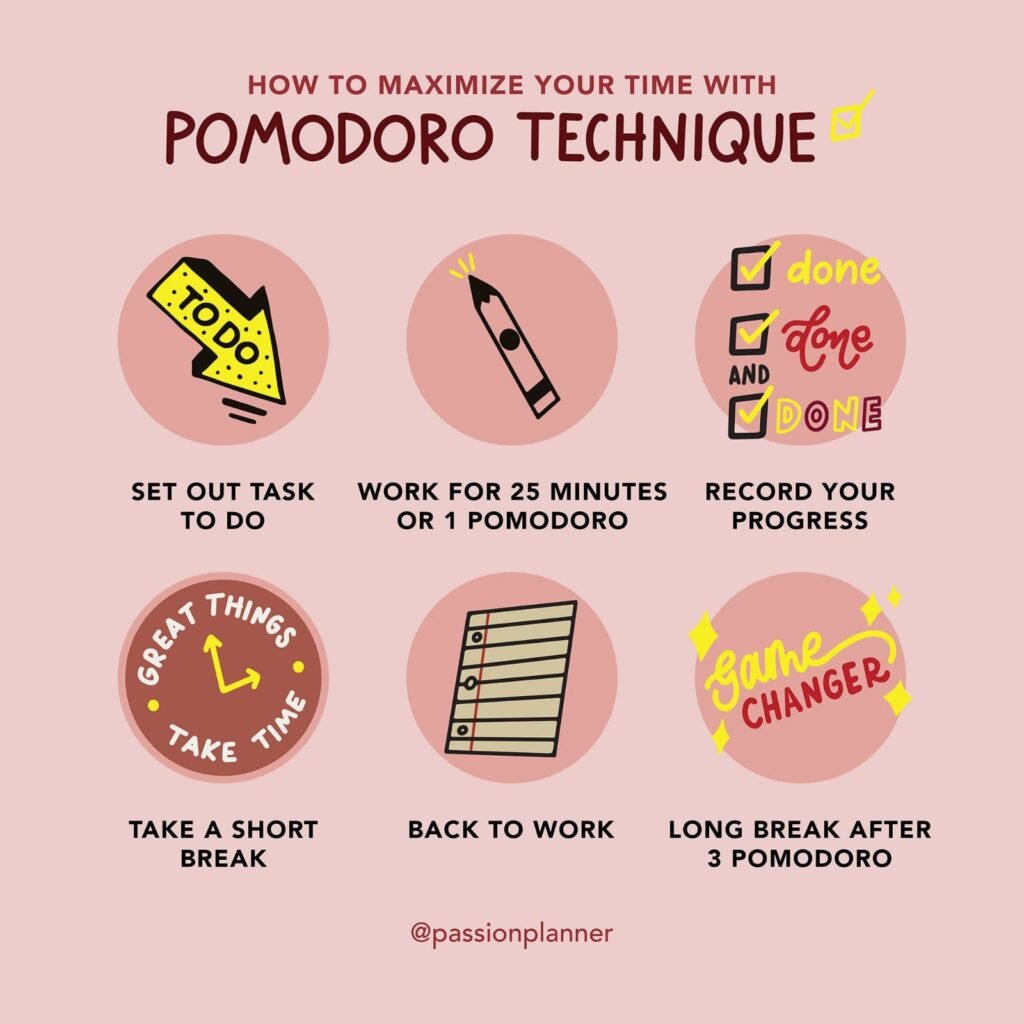
The Pomodoro Technique is a time management method developed by Francesco Cirillo. It involves working in focused intervals, usually 25 minutes long, followed by a short break.
**How the Pomodoro Technique works:**
- **Choose a Task**: Select a task you want to work on.
- **Set a Timer**: Set a timer for 25 minutes and focus on the task without interruptions.
- **Work on the Task**: Continue working until the timer goes off.
- **Take a Break**: Take a 5-minute break to rest and recharge.
- **Repeat**: After completing four Pomodoros, take a longer break (15-30 minutes).
The Pomodoro Technique promotes deep focus and helps prevent burnout by incorporating regular breaks.
3. The 80/20 Rule
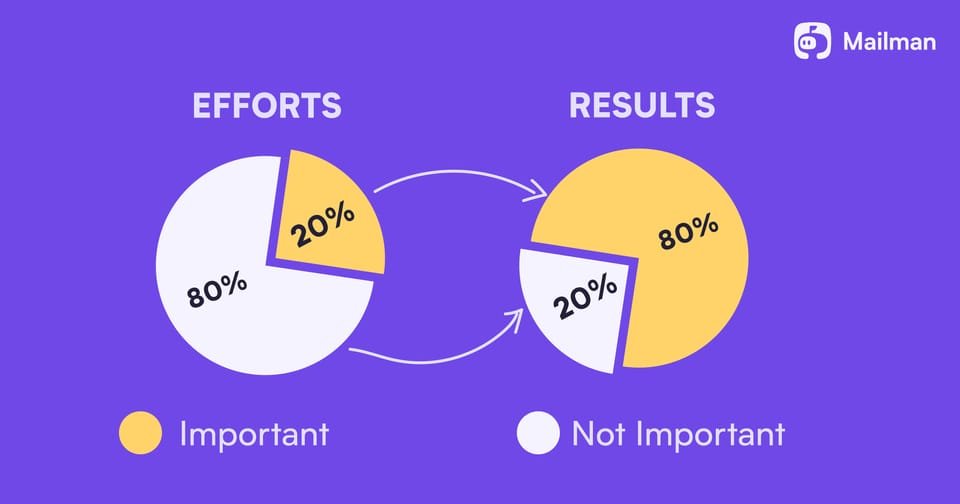
The 80/20 Rule, or Pareto Principle, suggests that 80% of your results come from 20% of your efforts. This means that a small portion of your work produces the majority of your outcomes.
**How to apply the 80/20 Rule:**
- **Identify Key Tasks**: Determine which tasks or activities contribute the most to your goals.
- **Focus on High-Impact Activities**: Prioritise these tasks and allocate more time to them.
- **Minimise Low-Impact Activities**: Reduce or eliminate tasks that have little impact on your overall success.
By focusing on the most impactful activities, you can achieve better results with less effort.
4. The Two-Minute Rule
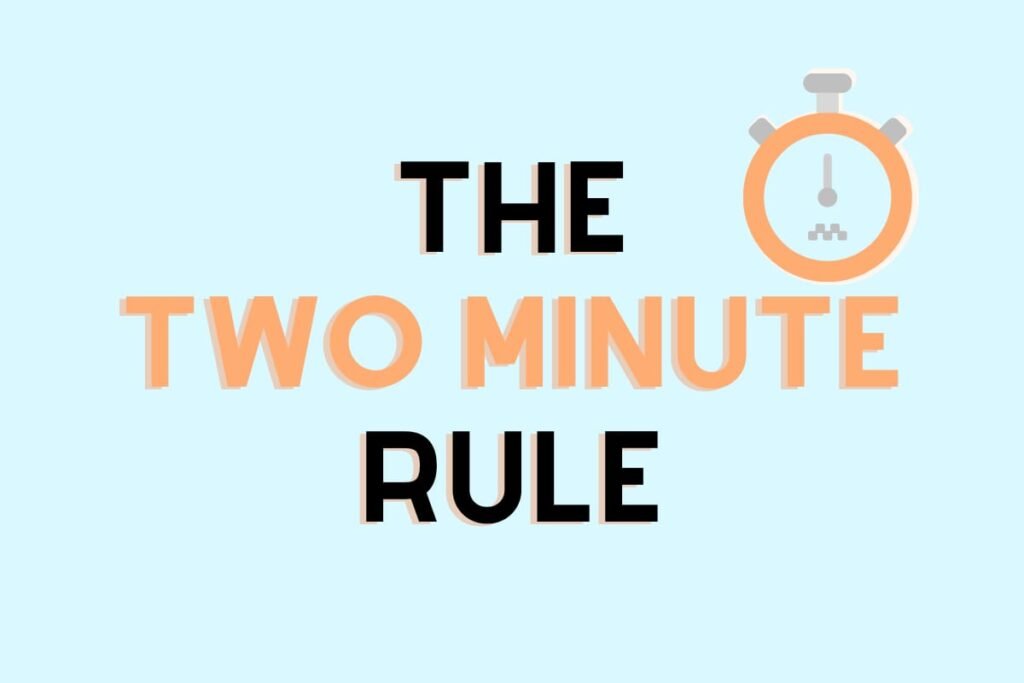
The Two-Minute Rule, popularized by David Allen in his book “Getting Things Done,” is a simple technique for managing small tasks. The rule states: If a task takes less than two minutes to complete, do it immediately.
**Benefits of the Two-Minute Rule:**
– **Quick Wins**: You can quickly clear small tasks from your to-do list.
– **Reduced Clutter**: Tackling small tasks immediately prevents them from piling up and overwhelming you.
– **Increased Efficiency**: This rule helps you stay on top of minor tasks without disrupting your workflow.
The Two-Minute Rule is especially useful for managing emails, returning calls, and handling other quick tasks.
5. The ABCDE Method
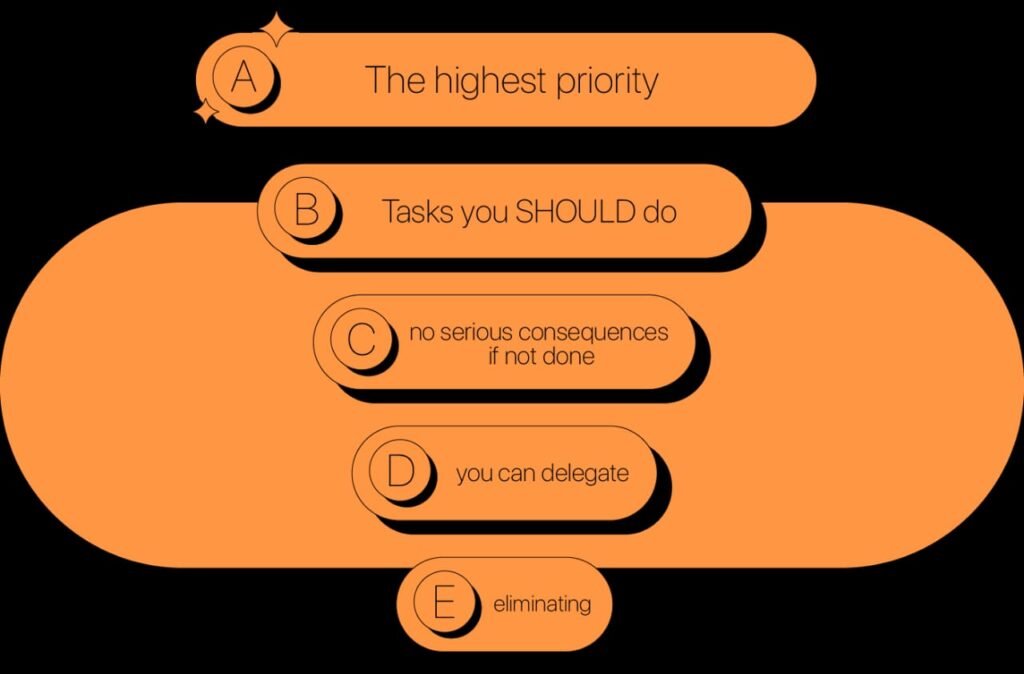
The ABCDE Method, developed by time management expert Brian Tracy, is a technique for prioritizing tasks based on their importance and urgency.
**How the ABCDE Method works:**
- **List Your Tasks**: Write down all the tasks you need to complete.
- **Assign a Letter to Each Task**:
– **A**: Tasks that are most important and must be done. These tasks have serious consequences if not completed.
– **B**: Tasks that should be done but are less important than “A” tasks.
– **C**: Tasks that are nice to do but have no real consequences if not completed.
– **D**: Tasks that can be delegated to someone else.
– **E**: Tasks that can be eliminated altogether.
- **Work Through Your List**: Start with your “A” tasks and work your way down.
The ABCDE Method helps you focus on the most important tasks, ensuring that you make progress on what truly matters.
6. The 1-3-5 Rule
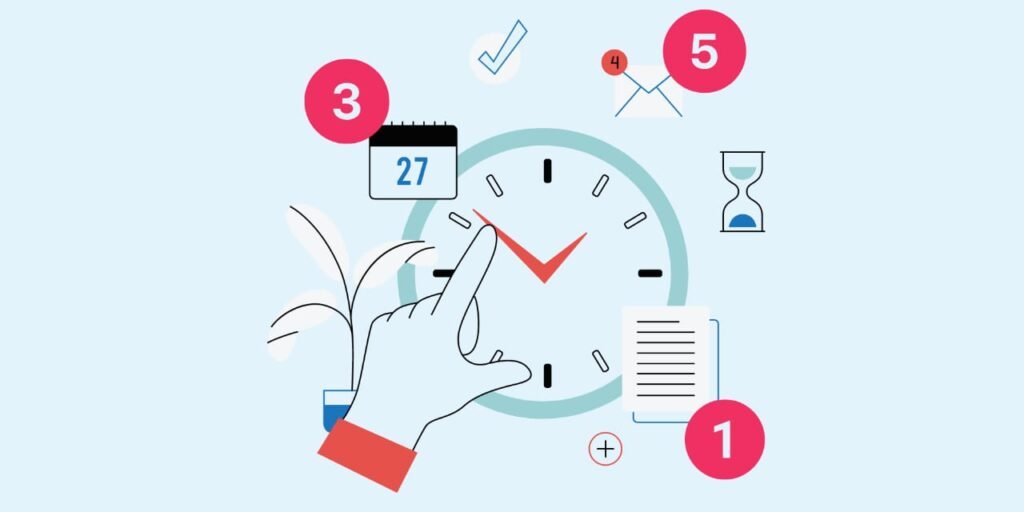
The 1-3-5 Rule is a simple time management technique that helps you set realistic goals for each day. The idea is to choose one big task, three medium tasks, and five small tasks to complete each day.
**How to use the 1-3-5 Rule:**
- **Identify Your Tasks**: List all the tasks you need to complete for the day.
- **Categorize Tasks**:
– **1 Big Task**: A major task that requires significant time and effort.
– **3 Medium Tasks**: Important but less demanding tasks.
– **5 Small Tasks**: Minor tasks that are quick and easy to complete.
- **Focus on Completing the List**: Start with the big task and work your way through the medium and small tasks.
The 1-3-5 Rule helps you set manageable daily goals, preventing you from overloading your schedule.
7. Batching Similar Tasks

Task batching involves grouping similar tasks together and completing them in one focused session. This technique minimizes the time lost in switching between different types of tasks and allows you to maintain focus.
**How to implement task batching:**
- **Identify Similar Tasks**: Group tasks that require similar skills or resources.
- **Allocate Time Blocks**: Set aside specific time blocks in your schedule for each batch of tasks.
- **Focus on One Batch at a Time**: Work on one batch of tasks without switching to other tasks until the batch is complete.
Task batching is particularly effective for managing repetitive tasks and can significantly boost your efficiency.
8. The Ivy Lee Method
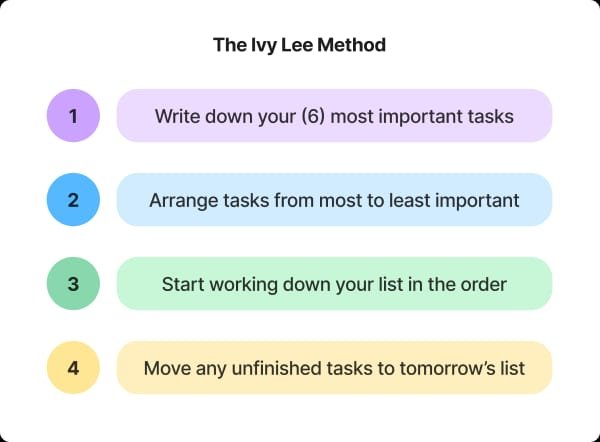
The Ivy Lee Method is a time management technique that dates back to the early 20th century. It was developed by productivity consultant Ivy Lee and has been widely used by successful business leaders.
**How the Ivy Lee Method works:**
- **At the End of Each Day**: Write down the six most important tasks you need to accomplish the next day.
- **Prioritize the List**: Arrange the tasks in order of importance, with the most critical task at the top.
- **Start with the First Task**: The next day, begin with the first task and work your way down the list.
- **Complete the List**: Focus on one task at a time until all
six tasks are completed.
The Ivy Lee Method is simple yet effective, helping you stay focused on your most important tasks each day.
9. The GTD Method (Getting Things Done)
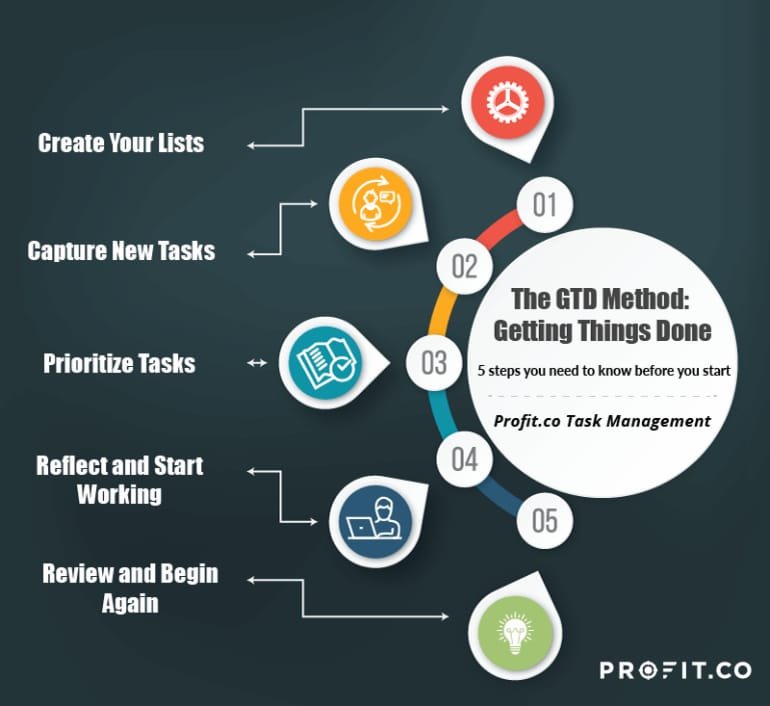
The GTD Method, created by productivity expert David Allen, is a comprehensive time management system that helps you organize your tasks and responsibilities.
**How the GTD Method works:**
- **Capture**: Collect all your tasks, ideas, and responsibilities in a trusted system (e.g., a to-do list or app).
- **Clarify**: Process each item and decide what action needs to be taken.
- **Organise**: Categorise tasks based on context, priority, and deadline.
- **Reflect**: Regularly review your tasks and goals to stay on track.
- **Engage**: Focus on the task at hand and take action.
The GTD Method provides a structured approach to managing your tasks, helping you stay organised and in control
10. The Pareto Principle (80/20 Rule)

The Pareto Principle, also known as the 80/20 Rule, suggests that 80% of your results come from 20% of your efforts. By focusing on the tasks that yield the most significant results, you can maximize your productivity.
**How to apply the Pareto Principle:**
- **Identify Key Tasks**: Determine which tasks or activities have the most significant impact on your goals.
- **Prioritise**: Allocate more time and resources to these high-impact tasks.
- **Minimise**: Reduce or eliminate tasks that have little effect on your overall success.
The Pareto Principle is a powerful tool for focusing your efforts on the most important tasks.
Common Time Management Challenges and How to Overcome Them

Even with the best techniques, time management can be challenging. Here are some common obstacles and strategies to overcome them:
- **Procrastination**: Procrastination is a common time management challenge. To overcome it, break tasks into smaller steps, use the Pomodoro Technique, and set deadlines for each step.
- **Distractions**: Distractions can derail your productivity. Create a distraction-free workspace, use apps to block distracting websites, and schedule specific times for checking email and social media.
- **Overcommitment**: Taking on too many tasks can lead to burnout. Learn to say no, delegate tasks when possible, and prioritize your most important commitments.
- **Lack of Motivation**: When motivation wanes, it can be hard to stay on track. Set small, achievable goals, reward yourself for progress, and remind yourself of the benefits of completing your tasks.
- **Perfectionism**: Perfectionism can lead to wasted time and unnecessary stress. Set realistic expectations, focus on progress rather than perfection, and learn to accept good enough.
Tools and Apps for Time Management
In addition to these techniques, there are numerous tools and apps that can help you manage your time more effectively:
- **Todolist**: A task management app that helps you organize your tasks, set deadlines, and track your progress.
- **Trello**: A visual project management tool that allows you to organize tasks using boards, lists, and cards.
- **RescueTime**: A time-tracking app that helps you understand how you spend your time and identify areas for improvement.
- **Focus@Will**: A productivity app that uses music and sound to help you focus and stay on task.
- **Forest**: An app that encourages you to stay focused by growing a virtual tree while you work—if you leave the app, the tree dies.
Conclusion
Effective time management is a skill that takes practice, but the rewards are well worth the effort. By setting clear goals, prioritizing tasks, and using the right techniques and tools, you can make the most of your time, reduce stress, and achieve your goals. Remember that time management is not about doing more—it’s about doing what matters most.
Whether you choose to implement the Eisenhower Matrix, time blocking, the Pomodoro Technique, or any other method, the key is to find what works best for you and stick with it. With dedication and consistency, you can master the art of time management and lead a more productive, balanced, and fulfilling life.
For BUYING KITCHEN UTENSILS-CLICK HERE
Follow Our Youtube Channel-CLICK HERE
FOLLOW OUR FACEBOOK PAGE-CLICK HERE
FOLLOW OUR FACEBOOK GROUP-CLICK HERE